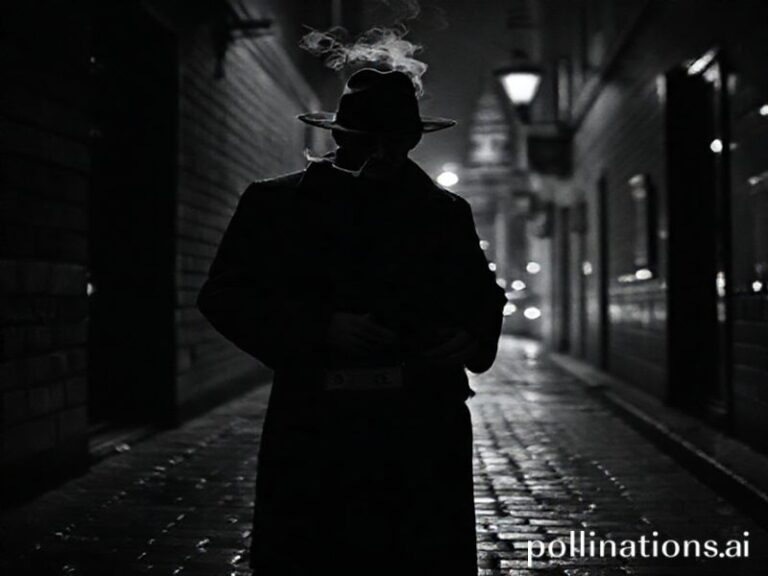Florence Welch: The Global Priestess of Glorious Doom
Florence Welch and the Apocalypse Choir: How One British Siren Became the Unofficial Soundtrack to Global Panic
There’s a moment, somewhere between the third gin and the fourth news alert about melting ice caps, when Florence Welch’s voice detonates in your headphones like a glitter bomb filled with medieval incense. Suddenly you’re not doom-scrolling in a Berlin co-working loft or queuing for overpriced noodles in Singapore—you’re in a cathedral made entirely of anxiety, and the stained glass is bleeding. That, in essence, is the international soft-power triumph of Florence + The Machine: she’s turned planetary dread into a sort of ecumenical cardio workout.
Born in Camberwell to a family who presumably traded rosaries for Rothkos, Welch has spent the past fifteen years translating the collective hangover of late capitalism into baroque pop exorcisms. While other British exports negotiate tax loopholes or weaponise nostalgia, Welch exports catharsis on a scale the World Health Organisation can’t bottle. Her voice—equal parts choirgirl and air-raid siren—has become the lingua franca of beautiful despair, a sonic Schengen zone where borders collapse under the weight of harps and reverb.
Consider the data. In Mexico City, “Dog Days Are Over” streams spike every time the peso hiccups. Seoul karaoke joints report that “Shake It Out” is the go-to purge after a 14-hour corporate slog, narrowly beating local trot ballads about salarymen jumping off bridges. Even in Moscow, where the state prefers its pop stars patriotic and shirtless, Welch’s concerts sell out faster than you can say “sanctions.” The implication is unsettling: when the global mood ring turns septic, we all want the same red-haired priestess to scream our sins back at us in iambic pentameter.
The cynical read is that Welch is merely commodifying millennial dread—turning student-loan insomnia into festival-headliner gold. But that misses the geopolitical elegance of her operation. While streaming platforms fragment culture into algorithmic micro-niches, Welch offers the last universally translatable emotion: magnificent terror. She’s basically the IMF of feelings, issuing sonic loans of hope secured against your remaining serotonin.
Her latest album, Dance Fever, arrived just as the world learned to spell “long Covid.” Lead single “My Love” soundtracks TikToks from Ukrainian bomb shelters and Chilean protest marches alike—a conga line of trauma set to a kick drum. The irony, of course, is that the more apocalyptic the headlines, the more buoyant Welch becomes; she’s the rare artist whose market cap rises in direct proportion to human misery. If Deutsche Bank ever figures out how to securitise desperation, expect Florence ETFs to trade next to wheat futures.
Yet there’s something sneakily utopian in all this grandeur. When 50,000 Brazilians chant “Cosmic Love” under a collapsing Amazon sky, they’re not just consuming content—they’re performing a low-cost emotional union that the UN could never budget for. Welch’s stage, festooned with pagan iconography and what appears to be the entire inventory of a defunct convent, becomes a temporary autonomous zone where passports are irrelevant and the only visa required is a willingness to feel slightly better about the heat death of everything.
The darker joke is that Welch herself seems faintly bewildered by the job description. In interviews she oscillates between mystic and mortified, as if she’s been handed the keys to a cathedral and can’t find the off switch for the incense machine. Meanwhile, her audience grows ever more devout: Japanese fans mail her handwritten exorcisms; Italian teens get tattoos of her lyrics in Comic Sans. Somewhere in Davos, a consultant is PowerPointing the Welch Model as a case study in scalable spiritual infrastructure.
So here we are, orbiting late-stage capitalism in a handbasket lined with velvet and drum fills. Florence Welch hasn’t fixed the world—no one’s that deluded—but she has provided a soundtrack for its unravelling that makes the end times feel almost danceable. If that isn’t soft power, I don’t know what is. And if the bombs do drop tomorrow, you can bet the last notification on humanity’s collective phone will be a push alert: “New Florence track out now—perfect for the fallout.”







